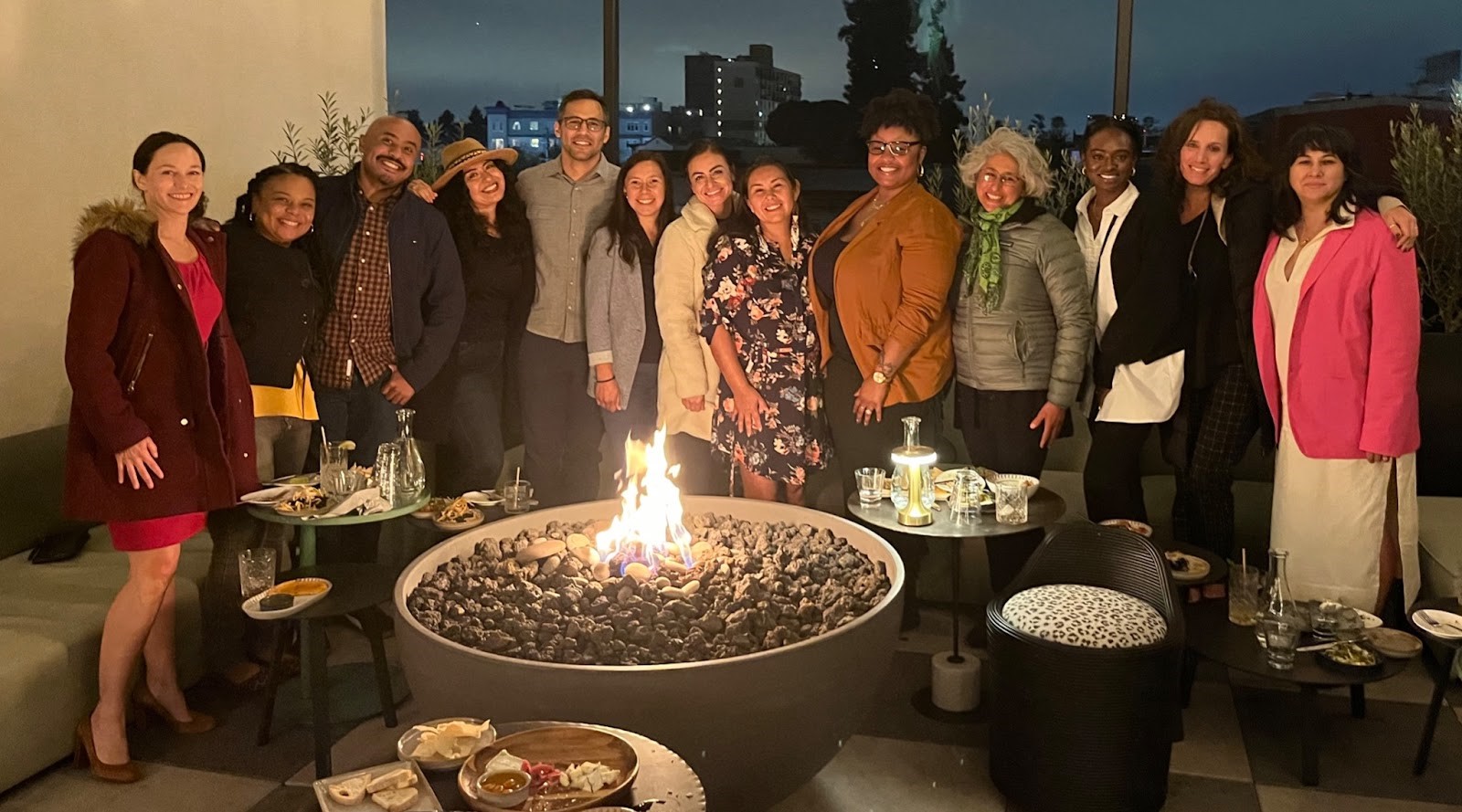CCJFG Movement Partner Spotlight: Transgender Gender-Variant, Intersex Justice Project

TGIJP members at a protest in San Francisco in 2020. Photo credit Transgender, Gender-Variant, Intersex Justice Project.
Interview with Janetta Johnson, Executive Director
What are the priorities and values of the Transgender, Gender Variant, Intersex Justice Project?
The Transgender, Gender Variant, Intersex Justice Project (TGIJP) is a local, state, and national leader in providing networking, leadership development and organizing for Black Trans grassroots leaders and organizations while working to build strategies against the epidemic of violence facing Black Trans folks. We continue to do historic work as a group of transgender, gender variant, and intersex people (TGI)–inside and outside of prisons, jails, and detention centers–creating a united family in the struggle for survival and freedom. We work in collaboration with others to forge a culture of resistance and resilience to strengthen us for the fight against human rights abuses, imprisonment, police violence, racism, poverty, and societal pressures. We seek to create a world rooted in self-determination, freedom of expression, and gender justice.
What is the history of the organization?
TGIJP was founded in 2004 and has 17 years of experience challenging the human rights abuses committed against TGI people, centering the Black Transgender community in California prisons, jails, and detention centers, and successfully providing services to the Black transgender and gender nonconforming community in San Francisco. We have focused primarily on leadership development, community organizing, and legal and social support services to incarcerated and formerly incarcerated trans persons, centering the Black Transgender community. We are unique in what we do, who we serve, and who is directing and operating the organization. TGI Justice is one of the first and only legal advocacy and support organizations led by formerly incarcerated trans women of color.
What lessons has TGIJP learned about abolitionist organizing within system change work?
TGIJP utilizes a movement-building pedagogy with thematically concentrated areas of work including Leadership Development and Re-Entry Support for recently released and formerly incarcerated TGI people; Imprisoned People Organizing Support and Peer-driven Legal Services/Advocacy for currently incarcerated TGI people; and Alliance Building with other organizations working for imprisoned peoples’ rights, racial, economic and gender justice. We support leadership development of impacted people, empower incarcerated people to be leaders and support the direction of our legal program. Our Legal Director, Alex Binsfeld comes from the perspective of community lawyering that centers all of our work within community and ensures the respect and dignity of the community members we work with.
Our movement and community organizing work is abolitionist. While our advocacy work often focuses on providing basic everyday protections to TGI folks in jails and prisons, we feel that it is also abolitionist. We believe that the movement towards abolishing prisons starts by addressing how prisons strip people of their humanity and open them up to violence. By addressing the daily need for protection we are creating the framework that protects people while we work towards larger systematic divestment in the system. Our recent campaign victories include being part of coalitions that pushed for the closure of San Francisco’s Youth Guidance Center and the Jail, and successfully pushed to defund SF Police Department by $10 million and reinvest in Black communities. Our recent policy work includes advocating for bills in the state legislature that pushed for changes in recognizing name and gender change and where TGI folks are housed in CA prisons. These changes will help make things a little bit easier for TGI folks while we work towards our long-term goal to abolish prisons.
TGIJP Executive Director speaking during a protest in San Francisco in 2020. Photo credit: Photo credit Transgender, Gender-Variant, Intersex Justice Project.
What is the role of community violence prevention, intervention, and healing justice in TGIJP's organizing?
One of TGIJP's newest programs is to build a peer educator/leadership development program that focuses on the epidemic of violence that has particularly impacted the Black Transgender community. We are building a mental health team that centers the Black Trans community and works with different ways of helping this community deal with trauma and pain. Once this team is in place, we will provide training, leadership development, and employment development for Black Transgender community members who are formerly incarcerated, with a focus on directly addressing the violence they face, including domestic violence, hate violence, interpersonal violence, police violence, and structural violence. We will provide trainings on de-escalation, conflict resolution, street-based outreach, and know-your-rights trainings to share with other transgender community members. We will also focus on mental health and trauma to help people understand their own trauma and triggers, and heal PTSD from past violence. A final key component will be political education to support people to understand the violence and impact of systems of oppression. This will eventually lead to developing community organizing campaigns to address violence against transgender community, especially Black Transgender community members. Our overall goal is to bring healing justice into our work and communities.
How did the work and strategies of TGIJP shift in response to the COVID-19 crisis?
TGIJP immediately shifted into crisis case management to address the needs of our community. We focused on providing emergency housing funds for TGIJP members who were homeless as a result of the pandemic and supporting emergency housing for transgender and gender non-conforming (TGNC) community members coming out of prisons and jails. We also supported those who are chronically homeless, especially since TGNC community members continue to face discrimination in San Francisco housing programs.
Our work also addressed the major humanitarian crisis of COVID-19’s impact on people inside prison. For TGIJP, this meant trying to get people out by any means possible, including humanitarian parole and health-based releases. In San Francisco, we shaped a policy to divert or connect all TGI community members with re-entry services entering the justice system. There was little movement and lots of delays in getting anything done at the state level. Yet we continue to advocate for larger changes at the state level and are excited about our future organizing efforts.

